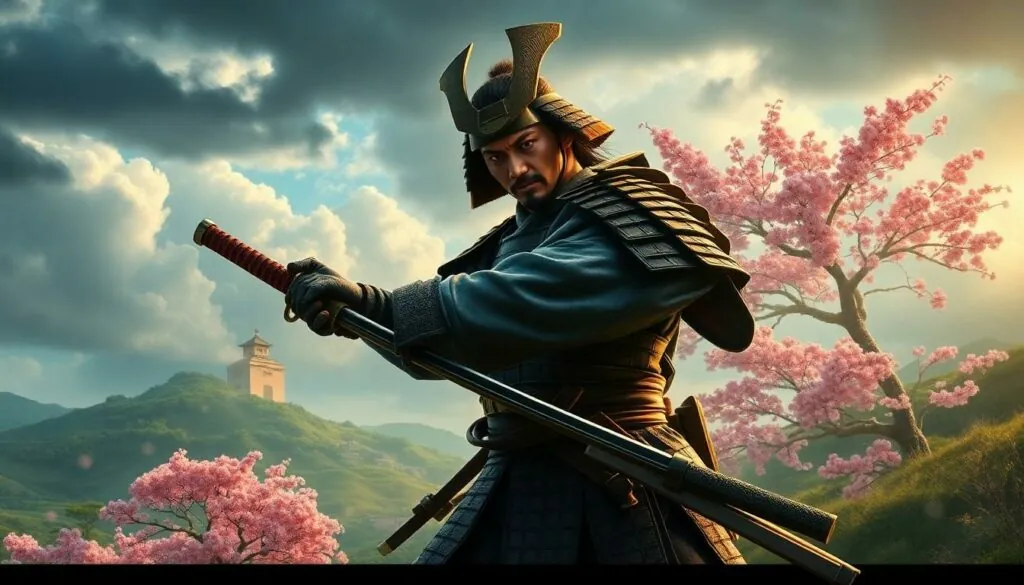Table of Contents
ToggleIn the vast world of gaming, few experiences rival the breathtaking beauty and gripping storytelling found in Ghost of Tsushima. This action-adventure masterpiece transports players to feudal Japan, where they step into the shoes of Jin Sakai, a samurai on a mission to save his homeland from Mongol invaders. But what if there’s a secret to unlocking even more of this epic journey? Enter the elusive Ghost of Tsushima key—the golden ticket that could elevate gameplay from great to legendary.
Overview of Ghost of Tsushima
Ghost of Tsushima offers an immersive experience in an open-world setting, where players navigate the landscapes of Tsushima Island. Set in 1274, this action-adventure game places players in the shoes of Jin Sakai, a samurai determined to protect his home from Mongol invaders. Combat mechanics emphasize skillful swordplay mixed with stealth tactics, providing options for various play styles.
Players explore vibrant environments, including lush forests, tranquil beaches, and sprawling villages. Notable features, such as the photo mode and customizable armor, enhance engagement. The storyline unfolds through quests that delve into themes of honor, sacrifice, and identity.
Dynamic weather systems and day-night cycles enrich the visual experience. Environmental storytelling immerses players in the rich culture of feudal Japan. Collectibles scattered throughout the world, including traditional haikus and bamboo strikes, encourage exploration.
The game’s soundtrack, composed by Ilan Eshkeri and Shigeru Umebayashi, complements the emotional narrative. Additionally, the “Ghost of Tsushima key” stands as a pivotal element, unlocking features that elevate the gameplay experience, such as new skills or equipment.
Realistic enemy AI behavior challenges players, requiring strategic approaches during battles. As Jin grapples with the demands of being a samurai, choices impact the fate of Tsushima and its people, leading to multiple possible endings. The intricate design and storytelling make Ghost of Tsushima a standout title in the action-adventure genre.
Gameplay Mechanics
Gameplay in Ghost of Tsushima revolves around its engaging combat and exploration. Players experience a variety of mechanics that enhance the immersive environment.
Combat System
Combat in Ghost of Tsushima blends traditional samurai techniques with stealth gameplay. Players can choose between direct confrontations and sneaky approaches, allowing for personalized strategies. Swordplay mechanics emphasize fluidity, offering a range of attacks and counterattacks. The game introduces stances that provide advantages against different enemy types, enhancing tactical depth. Additionally, special skills and powerful techniques can be unlocked as players progress, creating a sense of growth and mastery.
Exploration Elements
Exploration in the game captures the essence of Tsushima Island’s beauty. Players navigate vast landscapes filled with side quests, collectibles, and hidden secrets. The wind guides adventurers, directing them toward objectives and creating a unique navigation experience. Activities such as hunting and gathering resources contribute to character development and equipment upgrades. Dynamic weather and day-night cycles further enrich exploration, adding layers of realism to the gameplay.
Storyline and Characters
Ghost of Tsushima features a rich narrative with compelling characters that enhance the overall experience. The storyline, rooted in historical conflicts, offers players a glimpse into the struggle for Tsushima Island during the Mongol invasion.
Main Protagonist
Jin Sakai serves as the main protagonist in Ghost of Tsushima. He embodies the spirit of a samurai while grappling with his identity amidst the chaos of war. Facing overwhelming odds, he transitions from traditional samurai tactics to adopting unconventional guerrilla warfare strategies. This shift highlights his journey towards becoming the titular “Ghost,” a symbol of resilience and liberation. Players witness his internal conflict as he balances honor and the harsh realities of survival against the Mongols. Through Jin’s eyes, players explore the depth of honor and sacrifice in a time of crisis.
Supporting Cast
The supporting cast enriches Jin’s story, each character adding unique perspectives and dynamics. Yuna acts as a key ally, providing insights into stealth and unconventional fighting methods. Her resourcefulness contrasts with Jin’s adherence to samurai traditions. Lord Shimura, Jin’s uncle, represents the values of samurai culture while emphasizing the importance of honor. Other characters, including clansmen and villagers, contribute to the narrative through side quests and personal stories. Interaction with these characters enhances the emotional weight of the storyline, showcasing the varied responses to war. Together, they create a vibrant tapestry that complements Jin’s quest for freedom.
Visual and Audio Experience
Visual and audio elements in Ghost of Tsushima create an immersive atmosphere for players. The stunning graphics transport players to the lush landscapes of Tsushima Island during feudal Japan.
Graphics Quality
Graphics quality stands out with vibrant colors and intricate details. Players notice realistic character designs that capture cultural nuances. Environments vary from serene cherry blossom fields to rugged mountain terrains, each meticulously crafted. Dynamic weather effects enhance the experience, shifting from sunny skies to heavy rain. Light reflections on surfaces create a visually engaging backdrop. Moreover, the seamless transitions between cinematic scenes and gameplay maintain immersion.
Soundtrack Importance
Soundtrack importance lies in its ability to evoke emotion and heighten tension. Composed by Ilan Eshkeri and Shigeru Umebayashi, melodies resonate with the themes of honor and sacrifice. Instrumentation incorporates traditional Japanese sounds, grounding the setting in authenticity. Ambient sounds, like rustling leaves and distant birds, enrich the overall atmosphere. The music adapts to gameplay, intensifying during combat or transitioning to calming tunes during exploration. These elements combine to create a memorable audio experience, complementing the rich visuals.
Reception and Critique
Ghost of Tsushima received widespread praise for its immersive gameplay and storytelling. Critics highlighted the blend of traditional samurai combat with stealth elements, making each encounter engaging.
Critical Acclaim
Review scores reflect the game’s impact on players and critics alike. Metacritic reports an average score of 83 from critics and 9.0 from users, showcasing its positive reception. Many reviewers celebrated its visual artistry, noting the breathtaking landscapes and intricate details that bring Tsushima Island to life. The narrative, deeply rooted in cultural themes, garnered attention for its emotional depth and character development. Recognized for its masterful sound design, the soundtrack enhances the game’s atmosphere, adding to its acclaim.
Fan Reactions
Fans embraced Ghost of Tsushima for its open-world exploration and combat mechanics. User reviews often reference the freedom to choose play styles, allowing for personalized gameplay experiences. Players appreciate the rich lore and historical context, immersing them in feudal Japan. Many community discussions focus on the emotional journey of Jin Sakai, resonating with themes of honor and sacrifice. Collectively, these reactions underline the game’s ability to connect with its audience in profound ways.
Conclusion
The Ghost of Tsushima key represents a gateway to an even richer gaming experience. It promises to unlock new skills and equipment that deepen the player’s journey through the stunning landscapes of Tsushima Island. As players navigate the challenges of combat and exploration, this key could enhance their strategies and personalize their approach to gameplay.
With its masterful storytelling and breathtaking visuals, Ghost of Tsushima continues to captivate audiences. The emotional weight of Jin Sakai’s journey resonates deeply, making every choice impactful. This game stands as a testament to the power of immersive storytelling in the action-adventure genre.






